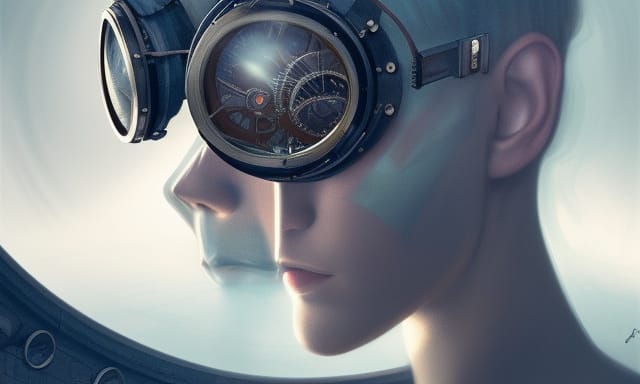Exploring Dimensions: How Our Perception Fails Us
Written on
Chapter 1: The Nature of Perception
How effectively do our senses and cognitive processes interpret the universe around us?
As we navigate through life, it's crucial to acknowledge how our understanding of reality can be skewed.
Section 1.1: Understanding Higher Dimensions
Imagine a reality where objects exist in four spatial dimensions. What would such a concept look like? Instead of the familiar movements of up-down, left-right, and forward-backward, envision shifting in an entirely different direction.
For many of us, this is a daunting task.
While we can use analogies and mathematical descriptions to grapple with such ideas, our brains are inherently designed for a three-dimensional experience. Consequently, we find it challenging to truly visualize or comprehend higher dimensions.
But what is the significance of these additional dimensions?
Emerging theories, especially string theory, highlight the necessity of extra dimensions to explain the complexities of our universe. It’s possible that one day, these dimensions will be accepted as a fundamental aspect of our reality, even if they remain inaccessible.

Section 1.2: String Theory Unpacked
This section takes a closer look at string theory and its implications for unifying the various fundamental forces of nature into a cohesive Theory of Everything.
The first video titled "THE Interview That 'Solves The Human Condition And Saves The World!'" explores profound questions about existence and reality through insightful discussions.
Chapter 2: Confronting the Concept of Infinity
How well can we truly conceptualize the idea of infinity?
As a child, I often wrestled with the notion of infinity, particularly when trying to zoom out from my immediate reality, which was always met with a mental block.

Our capacity to comprehend vast numbers is already constrained, and when infinity enters the equation, we can easily become overwhelmed.
If the universe is indeed infinite, how can our limited brains grasp such a concept? Everything we experience is finite: our lifespans, daily routines, and physical measurements are all bounded.
It’s not merely that everything has a beginning and an end; it’s that our biology and cognitive frameworks are inherently designed to function within these finite boundaries.
In essence, we are not equipped to explore infinity. We exist in a comfortable, finite realm that our evolution has prepared us to navigate and understand.
While our everyday experiences are limited, mathematics and physics provide us with tools to extend our understanding, allowing us to envision a more complex reality that transcends our sensory perceptions.

Conclusion: The Fascinating Limitations of Our Understanding
Imagine if there were countless worlds just beyond our perception, existing only a few millimeters away in a fourth dimension, completely unknown to us.
Exploring such possibilities may prove impossible since our tools are confined to the same three-dimensional limitations we face.
It's astounding to think that a group of visionary thinkers from the 1990s sparked a journey of exploration for both my childhood and adult selves, leading to these profound considerations.
If you found this exploration intriguing, consider supporting us by joining Medium through our referral link—it's a simple way to contribute without extra cost!
Read more from Keg Umian and other writers on Medium, where your membership directly supports our work.
Citations
Greene, B. The Elegant Universe.
Perception as a closed-loop convergence process Perception of external objects involves sensory acquisition via the relevant sensory organs. A widely-accepted... www.ncbi.nlm.nih.gov
Section 2.1: Practical Guide to the Garmin Instinct 2 Series
The second video, "Garmin Instinct 2 Series: The Complete Beginners Guide," is an essential resource for those looking to navigate the intricacies of this advanced smartwatch.